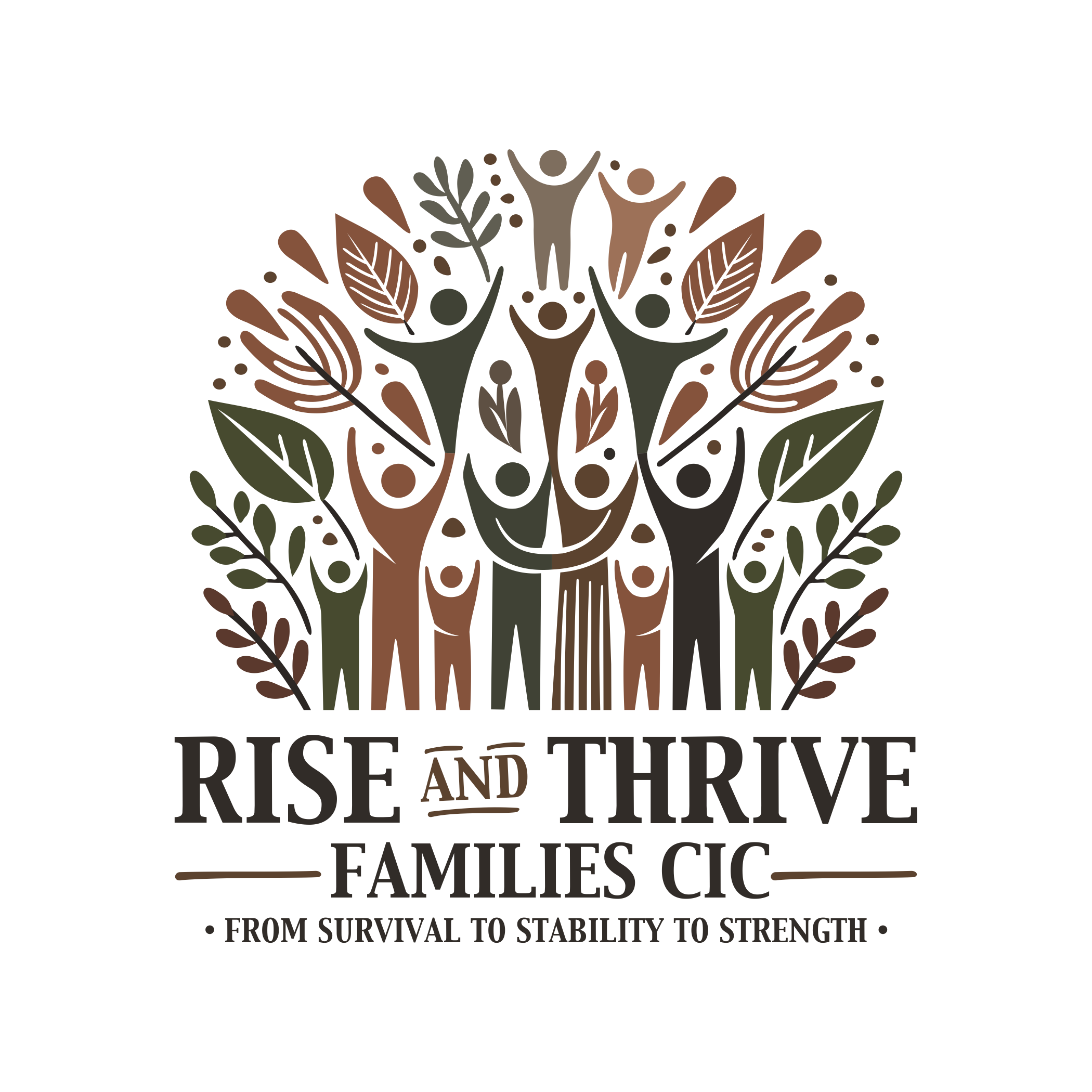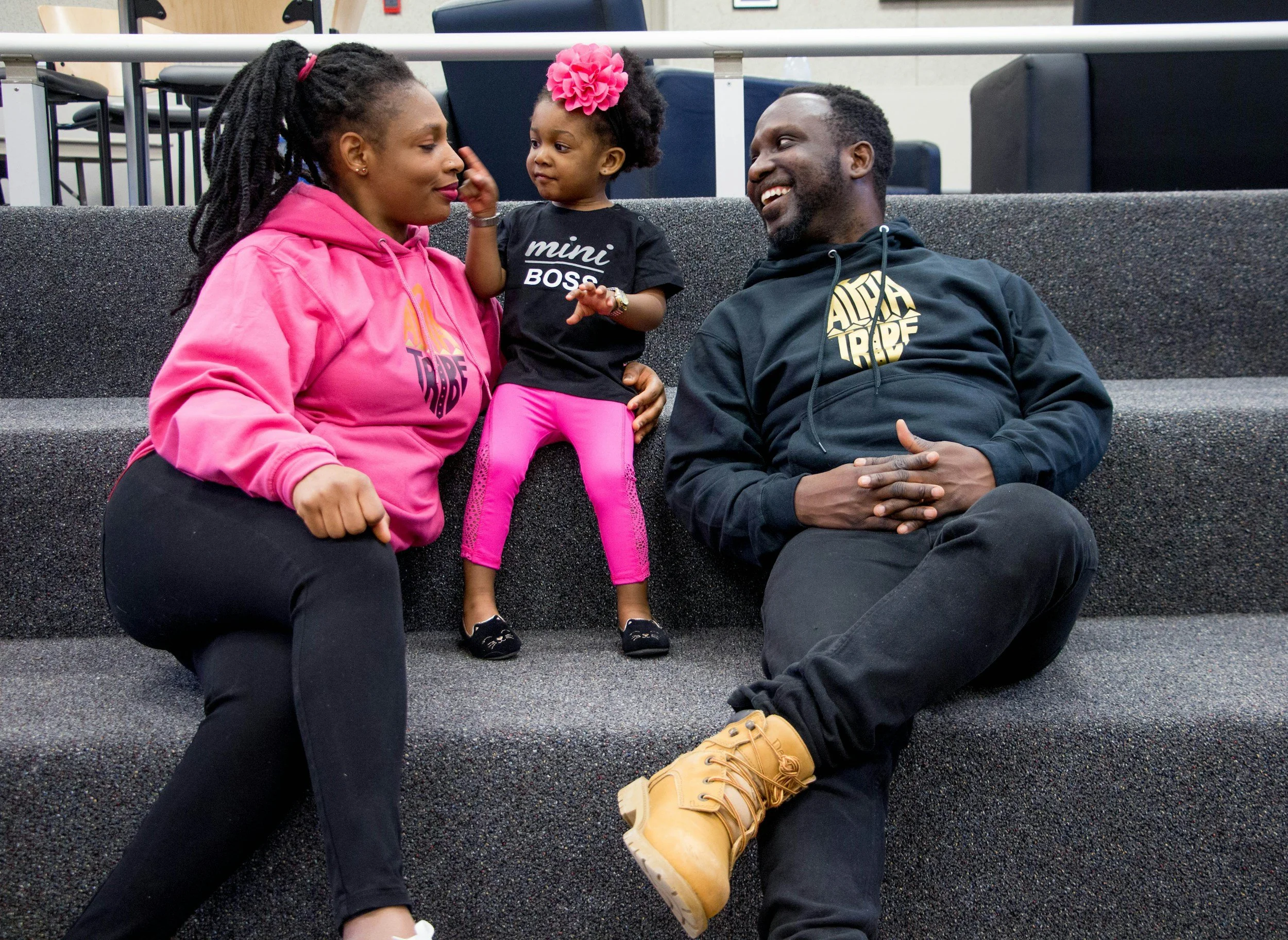Download Commissioning Pack
☆
Download Commissioning Pack ☆
Healing Families,
Preventing Harm
Evidence-informed practice with validated outcome tools
Co-designed support plans with SMART goals
Partnership working with statutory services
Complements existing social services work
Reduction to GP clinical hours
Six integrated services from intensive trauma-informed support to community healing events. Multi-disciplinary team delivering trauma-informed, culturally responsive interventions with measurable outcomes for families with children
Family Connection & Warmth
Building resilient families through trauma-informed care and community support
-
Children's centres, family hubs, and community spaces across the UK
-
Structured 3-6 month programmes based on assessed need
-
Hybrid model, One-to-one trauma-informed support in person or group work, practical navigation
-
All services delivered in line with safeguarding protocols
Schedule A Meeting
☆
Schedule A Meeting ☆
Our Vision & Evidence Base
To empower parents impacted by trauma, mental health challenges, or domestic abuse to heal, grow, and create emotionally safe environments where their children can thrive.
Why This Matters for Commissioners
Children's wellbeing is intimately connected to their caregivers' mental health and capacity to form secure attachments. Research shows parental trauma significantly disrupts child development across emotional, cognitive, and social domains.
Key Impact Statistic : 70% of our clients report fewer social care referrals within 6 months
Key Impact Statistic : 70% of our clients report fewer social care referrals within 6 months
Six Integrated Services
Multi-disciplinary team delivering trauma-informed, culturally responsive interventions with measurable outcomes for families with children
Off-peak sessions (7:45-9:00 PM) providing education on trauma, parenting, and resilience with peer connection and professional facilitation.
Parenting with trauma
Anxiety and low mood
Breaking intergenerational patterns
3-6 month structured interventions strengthening parent-child attachment, emotional regulation, and co-developed Early Help plans with SMART goals.
PACE-informed reflective tools
Home visits, community, or online
Mental health impact assessment
Systemic Practice application in case supervisions
Empowering professionals across health, education, and community sectors with practical, evidence-based training. Our sessions focus on trauma-informed care, anti-racist practice, and culturally relevant service delivery, ensuring every family receives the support they deserve.
Trauma-informed early help
Anti-racist service delivery
Co-designed workshops
Partner with us to build stronger, more inclusive support systems, where every professional is confident, compassionate, and culturally aware.
Eligibility Criteria
Included
Parents with mental health challenges
Trauma or domestic abuse survivors
Children under 18 years old
Exclusions
Active substance misuse
Current mental health crisis
Requiring psychiatric care
Navigation support for housing, benefits, mental health services, domestic abuse support, and SEND pathways with 1:1 advocacy.
Practical signposting
Community integration
Support for marginalised families
Structured sessions supporting developmental milestones through targeted play, guided observation, and early years assessments.
Developmental milestone support
Early years assessments
Nursery/children's centre collaboration
Quarterly coffee mornings and engagement events to raise awareness, strengthen trust, and reduce stigma, particularly for Black and ethnically minoritised families.
Community-based partnerships
Statutory-voluntary collaboration
Stigma reduction
Multi-Disciplinary Team
Social Workers
Counsellors
Family Support Workers
IDVAs
Playworkers
Student Social Workers
Experienced in PACE, systemic family practice, and trauma-informed care
Evidence-Based Outcome Measurement
Validated Assessment Tools
GAD-7 (Anxiety)
Generalised Anxiety Disorder assessment
PHQ-9 (Depression)
Patient Health Questionnaire for depression screening
BASIS-32
Behaviour and Symptom Identification Scale
Core 10
Screening, ongoing evaluation of psychological distress, and in research to assess the effectiveness of treatments
ASQ's (Child Development)
Ages and Stages Questionnaires for developmental screening
For Commissioners
Measurable evidence of progress and impact
Data-driven impact reporting for funding decisions
Transparent demonstration of service effectiveness
Evidence base for continued investment
Measurement Schedule
Longitudinal Tracking
Comprehensive outcome measurement at regular intervals ensures sustained impact and enables continuous service improvement
Why We Use Validated Outcome Tools
For Service Delivery
Track changes in wellbeing over time
Tailor interventions based on assessed need
Ensure evidence-based practice standards
Demonstrate outcomes to families and professionals
The Problem We Address











Testimonials
Case Study: The Johnson Family Journey
Before Intervention
3 children on child protection plan
Weekly police callouts
School attendance below 60%
Mother experiencing severe PTSD
During Programme
12-week intensive support
Trauma therapy for mother
Children's therapeutic groups
Advocacy with schools/services
6 Months Later
Children stepped down from CP
Zero police callouts
School attendance above 86%
Family thriving independently














